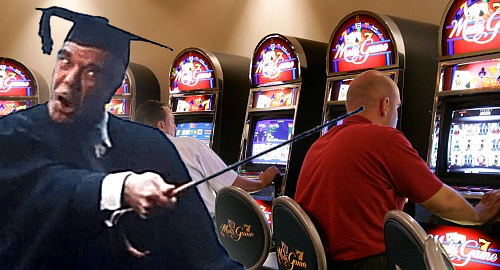 UK schools should incorporate gambling into their curricula much as they educate students on the realities of sex, alcohol and drug use, according to a new study.
UK schools should incorporate gambling into their curricula much as they educate students on the realities of sex, alcohol and drug use, according to a new study.
Last week, independent educational charity Demos released the results of a two-year pilot education program intended to give students the tools they need to recognize the risks of gambling, as well as teaching them how to resist some of the more persistent come-ons of gambling marketing.
The program, which was sponsored in part by the industry-funded GambleAware charity, involved 650 14-year-old students across four schools in 2016. The program covered a range of ‘risky behaviors,’ including gambling. The intent was to encourage students to “weigh risk, identify manipulative behavior, manage impulses and help others” who experienced problems saying ‘when.’
One year after the program, Demos claimed to have observed a net decline of 7% in the number of pupils who copped to playing cards for money in the previous year versus the comparison group. There was also a net 3% decline in the number of ‘at risk’ students who admitted engaging in four or more types of gambling activities over the same period.
There were more statistically significant changes in students’ knowledge of how to help others suffering from gambling problems, with participating students scoring 20% higher than those in the comparison schools. There was also a net 18% gain in participating students knowing where to go to discuss gambling problems.
The participating students scored 11% better than the comparison schools in their understanding of the concept of delayed gratification, which will no doubt thrill the girls in the class if the boys can extrapolate these lessons learned to other forms of risky behavior.
Using a fake gambling advert, students were asked to identify and analyze the persuasive techniques being employed, and how they might affect decision-making. At the end of the program, participating students scored 10% higher than the comparison group in terms of recognizing techniques used by the gambling industry to persuade people to gamble.
Demos hopes to convince the government to include gambling in the personal, social, health and economics (PSHE) education program, which the government is currently reviewing. It’s worth noting that this site’s founder has been advocating for gambling education in schools for nearly a decade, based on the simple premise that forewarned is forearmed, and that ignorance benefits no one. And with that, recess is over.